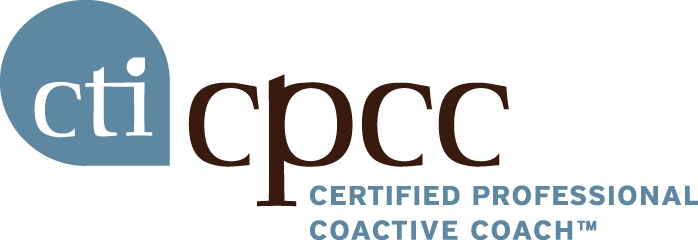In this blogpost I’m taking a dive into the murkier waters of Imposter Syndrome, specifically exploring two powerful sub-conscious beliefs which I believe are behind a great many of our Imposter thoughts, feelings and behaviours.
Shame researcher and Mindful Leadership for Women heroine, Brené Brown, refers to these beliefs as “The Shame Tapes” - two beliefs which, separately or in concert, are running many of us ragged, in the workplace and beyond.
I’m going to say a little about what these ‘Shame Tapes’ are, why we have them, when they show up and what their effect might be particularly for women leaders. I will also discuss The Deadly Ps, a group of ‘imposter’ behaviours driven by our Shame Tapes which undermine our confidence, energy, self-esteem and self-belief, and have us playing small.
For me, the Shame Tapes and The Deadly Ps are the causes and consequences of many of our imposter thoughts, feelings and behaviours. And every woman needs to know about them.
[If this post whets your appetite, these topics are covered in much more depth in the online course Overcoming Imposter Syndrome which also provides a wealth of knowledge, skills and practices to help you let go of limiting beliefs and lead with authenticity, confidence and ease].
What are the ‘Shame Tapes’?
For almost all of us, the Shame Tapes show up as inner voices which are always critical in tone and always turned against ourself.
The message of the first Shame Tape is: “Never enough”, as in never good enough, never clever enough, never smart enough, never thin enough, strong enough, pretty enough, talented enough, confident enough, whatever enough.
And if we can overcome the first Shame Tape (and for many of us, that’s a big ‘if’), the second Shame Tape typically springs into action as a very forceful: “Who do you think you are?”.
Do you recognise the Shame Tapes in your own internal dialogue? Me too. It sucks, doesn’t it?
Why do we have them?
In her TED Talk on shame, Brené Brown shares how western culture encourages men and women from an early age to internalise the message that vulnerability - perhaps THE defining human quality - is weak, shaming and shameful.
And that this leaves each of us with a sigificiant conflict: we know experientially that to be human is to be vulnerable, and yet culturally we are told our vulnerability is weak and shameful.
When do the Shame Tapes show up?
So it follows that whenever we’re considering doing something that makes us feel vulnerable, we can expect the Shame Tapes to have something to say about it.
In The Power of Vulnerability, Brené Brown cites vulnerable situations including: “….the willingness to say "I love you" first, the willingness to do something where there are no guarantees, waiting for the doctor to call after your mammogram”.
In other words, situations that happen every single day.
In the workplace, the things which might make us feel vulnerable will differ from person to person but for most of us will include at least some of the following:
- implementing change
- doing anything creative
- building trust or consensus
- joining a new team
- leading a project
- applying for or taking on a new role
- speaking at an event
- taking part in an expert panel
- (writing a blog-post)
- questioning a policy or a decision
- going for a promotion
- requesting a pay-rise
- returning to the workplace
- laying people off
- etc.
Why does this matter?
For most women leaders, the list above features nothing out of the ordinary. These are the kinds of tasks we work with every day. However, take a moment and ask yourself:
- When I'm working with these and other leadership tasks, how tolerant am I of my own vulnerability?
- How prepared am I to model that vulnerability to others?
- How do I respond to the vulnerability of my colleagues or my team?
- How much do I believe our vulnerability is a measure of our courage, not our weakness?
Our answers to these questions will have significant consequences.
Organisations in which leaders and their teams feel able to be vulnerable create the kinds of cultures which many of us would love to experience in the workplace because vulnerability is the birthplace of values and qualities such as: authenticity, trust, respect, connection, creativity, innovation, community, accountability, openness, honesty and more.
By contrast, if leaders and their teams are wary or even scared of expressing any kind of vulnerability, this is a recipe for just the opposite: inauthentic behaviour, low levels of trust, fear of failure, little true debate, less creativity and innovation, low staff moral, and so on. Here’s where I would like to introduce The Deadly Ps.
Introducing the Deadly Ps
Pleasing, Proving, Performing, Pretending, Perfecting.
Be honest. Put your hand up if you’ve spent time with any of this grim bunch during your working or wider life.
Me too. All of them. And I’m sure we can agree, in anything other than small doses, they are NO FUN. AT ALL.
In fact, I’m starting to see that The Deadly Ps are some of the most damaging ‘symptoms’ of Imposter Syndrome because they routinely lead all of us, and perhaps particularly women leaders[1], in an exhausting dance; what Brené Brown memorably calls “The Hustle for Worthiness”.
Each of the Deadly Ps is, at its deepest level, driven by an unconscious belief that we are either not good enough (Shame Tape 1) or we’re too much (Shame Tape 2).
Why deadly?
I call these behaviours the Deadly Ps because, in anything more than small doses, they are unsustainable, dispiriting and exhausting, and can cause us and those we lead harm.
- So, Perfecting might show up in impossibly high standards, unfavourable comparison with others, low tolerance of mistakes and perceived failures, and continual dissatisfaction.
- Pleasing might show up as putting others’ needs first whilst neglecting our own.
- Proving behaviour might show up in an obsessive focus on results, achievement and status, endless striving for qualifications etc.
- Performing might show up as putting on an act to impress others, hiding one’s true self, and continual self-monitoring.
- Pretending might show up as not facing facts about a person, a relationship or a work situation, or by upholding beliefs or values which deep down we don’t share.
Different for girls?
Whilst the Deadly Ps are not the exclusive preserve of women, cultural norms and gender expectations compound women’s doubts about their leadership abilities which means these and other imposter behaviours are often more prevalent amongst women.
The Deadly Ps lead to women playing small, not actualising their talents, not claiming their place as leaders, and not bringing to work what we most need to see, their most authentic, courageous, compassionate selves.
No wonder so many women leaders report feeling inauthentic, disconnected from themselves and others, dispirited, disempowered and exhausted.
Not on my watch…
Studying Imposter Syndrome has opened my eyes to the way we as women are often being run by the subtle (and sometimes not-so-subtle) shame tapes of ‘never enough’ or ‘you’re too much’.
It has also shown me how we run ourselves ragged pleasing, perfecting, proving, performing or pretending, all defensive, fear-based behaviours which have us playing small and not realising our true value and talents.
This and other learning inspired Jo Alcock and I to create Overcoming Imposter Syndrome, a 4-week online course designed to empower women leaders to let go of their Shame Tapes and Deadly Ps, stop playing small, step into their full power and lead from their authenticity, courage, compassion, creativity and wisdom.
Want to know more?
Join us on October 10th when we are hosting a free webinar in which we will briefly share our vision for the Mindful Leadership for Women Programme before unpacking what you can expect from Overcoming Imposter Syndrome including: course structure, goals and learning approach. We will also say something about the kinds of knowledge, tools, practices and resources we will be sharing, and the safe, courageous and empowering learning space we will be holding for the women doing this work. You will also have the opportunity to ask questions about any aspect of the course. The webinar is free to attend and will take place on October 10th at 4pm UK time, lasting no more than 45 minutes. Book your free place.
Seen enough?
If you’ve read enough and are ready to join the course, please visit: https://www.surveymonkey.co.uk/r/mlwoic2017 where you can reserve your place. At the time of writing, we have a small number of spaces left and if you book by September 30th you will benefit from our early bird price (£325/$425) (thereafter £395/$525).
[1] As we’ve been exploring Overcoming Imposter Syndrome, Jo and I are hearing from more and more men that they are also suffering from Imposter Syndrome. We hear you and we empathise. However, as women remain woefully under-represented as leaders in almost all sectors and it has been estimated that Imposter Syndrome impacts at least 70% of women in the workplace, this is where we are focussing our attention initially.





